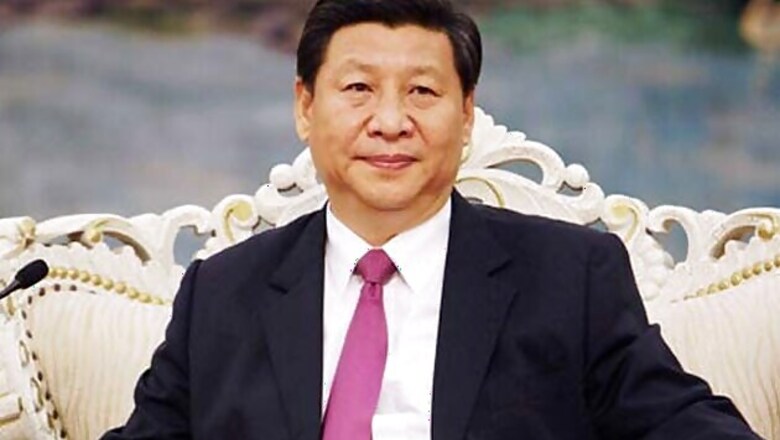
views
Beijing: Describing 2014 as an "unforgettable" year for China for its anti-graft campaign targeting hundreds of officials, President Xi Jinping on Wednesday promised to implement new judicial reforms to provide justice to common people, saying "there is no turning back".
Xi, in his New Year speech telecast nationwide, underscored the need to continue efforts to advance reform and rule of law in 2015, comparing them to "a bird's two wings".
He said the outgoing year was "unforgettable". "In 2014, we pressed ahead with reform, cracked many hard nuts and introduced a slew of important reform measures, which were closely related to the interests of our citizens," the President said.
Xi launched an unprecedented anti-graft campaign targeting party, government, military and state-owned company officials suspected of corruption after he came to power in late 2012. Those faced probes included former top security official Zhou Yongkang and Gen Xu Caihou, former Vice Chairman of the Military Commission, which controls China's armed forces.
They are the highest ranking officials held in the recent history of China. Speaking about the slowing down of the economy, which was expected to miss the 7.5 official target, Xi said, "We adapted to the new normal of economic growth; actively promoted economic and social development; and further improved the people's lives."
In 2015, he said, China will continue to comprehensively deepen reform, from which "there is no turning back". China will also continue to advance the rule of law to safeguard the people's rights and interests, guarantee social justice and promote national development, Xi added.
"Reform and rule of law must be advanced at the same time to achieve an all-round well-off society by 2020 as scheduled," he said. During his new year celebration for the country's top political advisory body, Xi, also general secretary of the Communist Party of China (CPC) Central Committee and chairman of the Central Military Commission (CMC), reviewed the CPC's work in 2014.
He discussed achievements in the fight against corruption, improving party members' work style and punishing formalism, bureaucracy, hedonism and extravagance.
"We must unswervingly safeguard Hong Kong and Macao's lasting prosperity and stability and deepen exchanges across the Taiwan Strait," Xi said without directly referring to the 75 days agitation of pro-democracy protests by thousands of people who occupied the main streets which brought Hong Kong to a grinding halt.
The protestors demand China to change the rule to screen candidates for the 2017 elections for the Hong Kong. Xi also referred to his mega multi-billion dollar Silk Road and Maritime Silk Road initiatives for which he announced USD 40 billion funds. He said the "Belt and Road Initiatives" to revive the ancient Silk Road from China via Central Asia and Russia to Europe and the Silk Road Economic Belt should be actively implemented.
A news documentary on China 'pro-active diplomacy' in 2014 by state-run CCTV, highlighted Xi's visit to India in September, among others, with photographs of him sitting with Prime Minister Narendra Modi on a Gujarati swing in Ahmedabad. "With a more proactive diplomatic strategy, China is seeking to establish itself as an active player on the world stage" the documentary said, adding that a more proactive China will best serve the country's interests.
"President Xi Jinping, for example, believes that more proactive approach is not only serves China's interests, but also serves the interests of other countries," said Jia Qingguo, dean of the School of International Studies at Peking University. "This is a time for China to be more proactive in promoting China's relationship with the outside world."
Chinese leaders have offered new ideas on relations with big powers and neighbouring countries, it said. For the US, China proposed a new model of "major-country relationship," which focuses on avoiding conflict and respecting core interests. For neighbouring countries, it put forward the concept of "sharing prosperity and inclusiveness," it said.




















Comments
0 comment